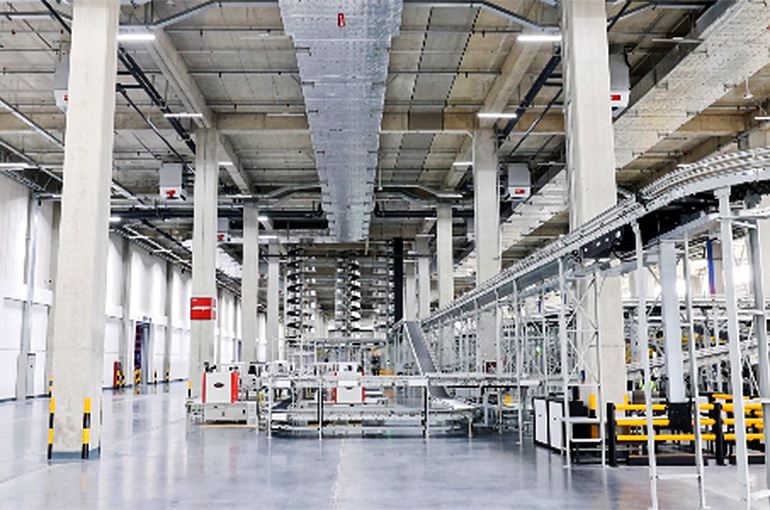 Adidas Opens USD137 Million Automated Distribution Center in China’s Suzhou
Adidas Opens USD137 Million Automated Distribution Center in China’s Suzhou(Yicai) Sept. 21 -- Adidas has opened its automated distribution center in the Chinese city of Suzhou after spending about CNY1 billion (USD137 million) on the project, making it the German sportswear giant's largest investment in China in the past five years.
The center, covering an area of 139,000 square meters, is highly automated and has smart warehousing and logistics services, Adidas said during the opening ceremony yesterday. It is capable of holding tens of millions of products, with a daily handling capacity of more than 1 million items, it added.
Integrating digital smart technology and automated hardware configuration boosts the center’s efficiency and improves the work experience of staff, the Herzogenaurach-based firm noted. It also enhances the ability to cope with the peak season of e-commerce business and logistics, it added.
Adidas has a retail presence across China, including flagship stores in major cities such as Beijing, Guangzhou, and Shanghai, which is about 110 kilometers from Suzhou, and has expanded into lower-tier cities. E-commerce is also an important sales channel for the brand in China, while distribution centers are vital to getting its goods to consumers and stores with ease.
Due to the pandemic, changes in consumer preferences, and competition from new brands, Adidas China's earnings fell over eight straight quarters, but its performance has picked up this year.
Adidas China's revenue jumped 16.4 percent to EUR766 million (USD815 million) last quarter from a year earlier, while sales rose 7 percent to EUR766 million, the sportswear firm said last month. First-half income climbed 1 percent to EUR1.7 billion (USD1.8 billion).
Chief Financial Officer Harm Ohlmeyer attributed the second-quarter rebound to Adidas continuing to design more products in China to better meet local trends and more quickly. The company is pays attention to local consumer needs and tries to better understand the Chinese market and culture, he added.
Regarding the firm’s need to reduce high inventory in China, Ohlmeyer pointed out that destocking is a challenge for all industries. Scaling down inventory is a top priority for Adidas in many global markets, especially in the face of overall economic environment, he noted.
Adidas not only needs to solve the cyclical inventory issue, but also structural problems, according to Tu Jun, senior vice president and CFO of Adidas China. The company adopts consumer-oriented stock management principles worldwide, Tu added.
Editor: Martin Kadiev